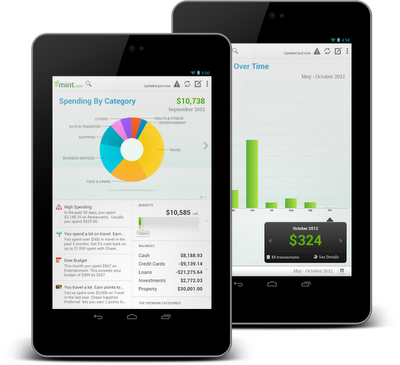Android SDK (Software Development Kit)&Golden Rules of Performance:
Welcome to Android Design, your place for learning how to design exceptional Android apps.
Any one can develop ANDROID App's .For that i provide the guidence to you .
Before start development just think about some topics.........
1) Which way you want to develop application ?
2) Do you want your application performance will be high.. For that what we do?
3) While creating application what standards are we follow?
4) What process we need to accomplish your task effectively and faster?
6) Where we comfortably built a application?
7) In future generation what type of interface they will Expected?
Etc...................?! So we need to know the
Note: This beginners guide will helps to know what basic standards follow to built a application. If you know all of those things again re-verify all of that.
Application development kit:
Get the Android SDK
Note: First you must be install the JAVA plugin to your computer.
Java Platform (JDK) 7u25
The Android SDK provides you the API libraries and developer tools necessary to build, test, and debug apps for Android.
ADT Bundle for Windows
Getting Started with Android Studio
EARLY ACCESS PREVIEW
for Windows
This download includes:
- Android Studio early access preview
- All the Android SDK Tools to design, test, debug, and profile your app
- The latest Android platform to compile your app
- The latest Android system image to run your app in the emulator
Android Studio is a new Android development environment based on IntelliJ IDEA. Similar to Eclipse with the ADT Plugin, Android Studio provides integrated Android developer tools for development and debugging. On top of the capabilities you expect from IntelliJ, Android Studio offers:
- Gradle-based build support.
- Android-specific refactoring and quick fixes.
- Lint tools to catch performance, usability, version compatibility and other problems.
- ProGuard and app-signing capabilities.
- Template-based wizards to create common Android designs and components.
- A rich layout editor that allows you to drag-and-drop UI components, preview layouts on multiple screen configurations, and much more.
Caution: Android Studio is currently available as anearly access preview. Several features are either incomplete or not yet implemented and you may encounter bugs. If you are not comfortable using an unfinished product, you may want to instead download (or continue to use) the ADT Bundle(Eclipse with the ADT Plugin).
Android NDK
The NDK is a toolset that allows you to implement parts of your app using native-code languages such as C and C++. For certain types of apps, this can be helpful so you can reuse existing code libraries written in these languages, but most apps do not need the Android NDK.
Before downloading the NDK, you should understand that the NDK will not benefit most apps. As a developer, you need to balance its benefits against its drawbacks. Notably, using native code on Android generally does not result in a noticable performance improvement, but it always increases your app complexity. In general, you should only use the NDK if it is essential to your app—never because you simply prefer to program in C/C++.
Typical good candidates for the NDK are self-contained, CPU-intensive operations that don't allocate much memory, such as signal processing, physics simulation, and so on. When examining whether or not you should develop in native code, think about your requirements and see if the Android framework APIs provide the functionality that you need.
Downloads
| Platform | Package | Size (Bytes) | MD5 Checksum |
|---|---|---|---|
| Windows 32-bit | android-ndk-r9-windows-x86.zip | 485200055 | 8895aec43f5141212c8dac6e9f07d5a8 |
| android-ndk-r9-windows-x86-legacy-toolchains.zip | 292738221 | ae3756d3773ec068fb653ff6fa411e35 | |
| Windows 64-bit | android-ndk-r9-windows-x86_64.zip | 514321606 | 96c725d16ace7fd487bf1bc1427af3a0 |
| android-ndk-r9-windows-x86_64-legacy-toolchains.zip | 312340413 | 707d1eaa6f5d427ad439c764c8bd68d2 | |
| Mac OS X 32-bit | android-ndk-r9-darwin-x86.tar.bz2 | 446858202 | 781da0e6bb5b072512e67b879b56a74c |
| android-ndk-r9-darwin-x86-legacy-toolchains.tar.bz2 | 264053696 | 9fd7f76a1f1f59386a34b019dcd20976 | |
| Mac OS X 64-bit | android-ndk-r9-darwin-x86_64.tar.bz2 | 454408117 | ff27c8b9efc8260d9f883dc42d08f651 |
| android-ndk-r9-darwin-x86_64-legacy-toolchains.tar.bz2 | 271922968 | 251c21defcf90a2f0e8283bab90ed861 | |
| Linux 32-bit (x86) | android-ndk-r9-linux-x86.tar.bz2 | 419862465 | beadafdc187461c057d513c40f0ac33b |
| android-ndk-r9-linux-x86-legacy-toolchains.tar.bz2 | 241172797 | 957c415de9d7c7ce1c2377ec4d3d60f1 | |
| Linux 64-bit (x86) | android-ndk-r9-linux-x86_64.tar.bz2 | 425113267 | 0ccfd9960526e61d1527155fa6f84ac0 |
| android-ndk-r9-linux-x86_64-legacy-toolchains.tar.bz2 | 244427866 | 3976a8237d75526b8a0f275375dd68b5 |
With NDK revision 9 and higher, the release packages have been split to reduce download size. The first download for each platform contains the default NDK toolchain. The second download contains legacy NDK toolchains for that platform, which is only required if you are not using the current, recommended toolchain for your NDK builds.
Posted by: Ravi kiran

No comments:
Post a Comment